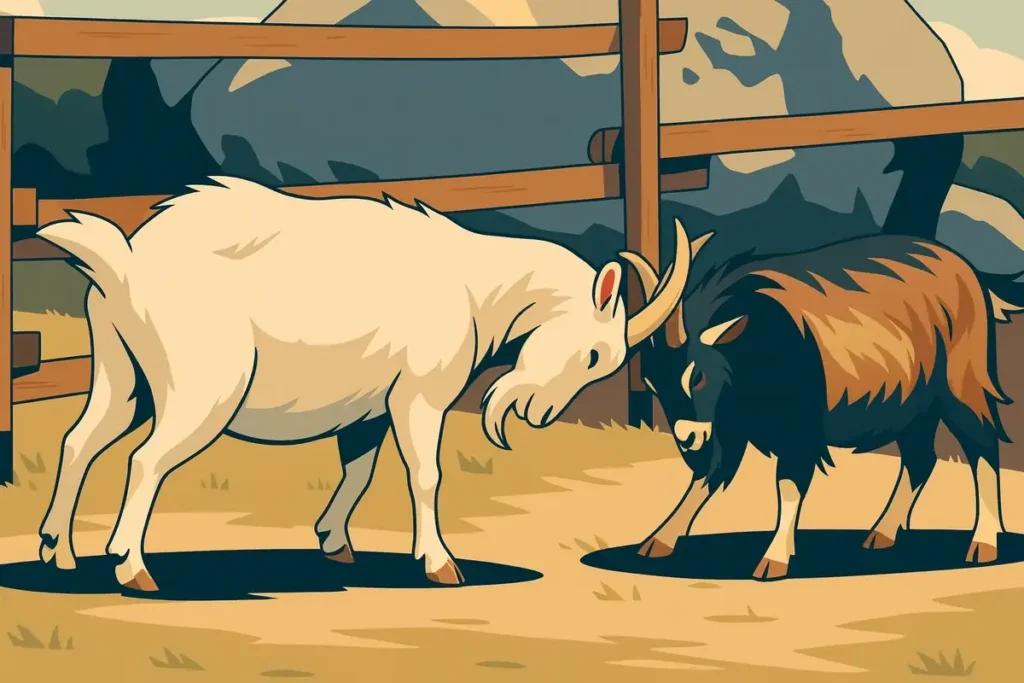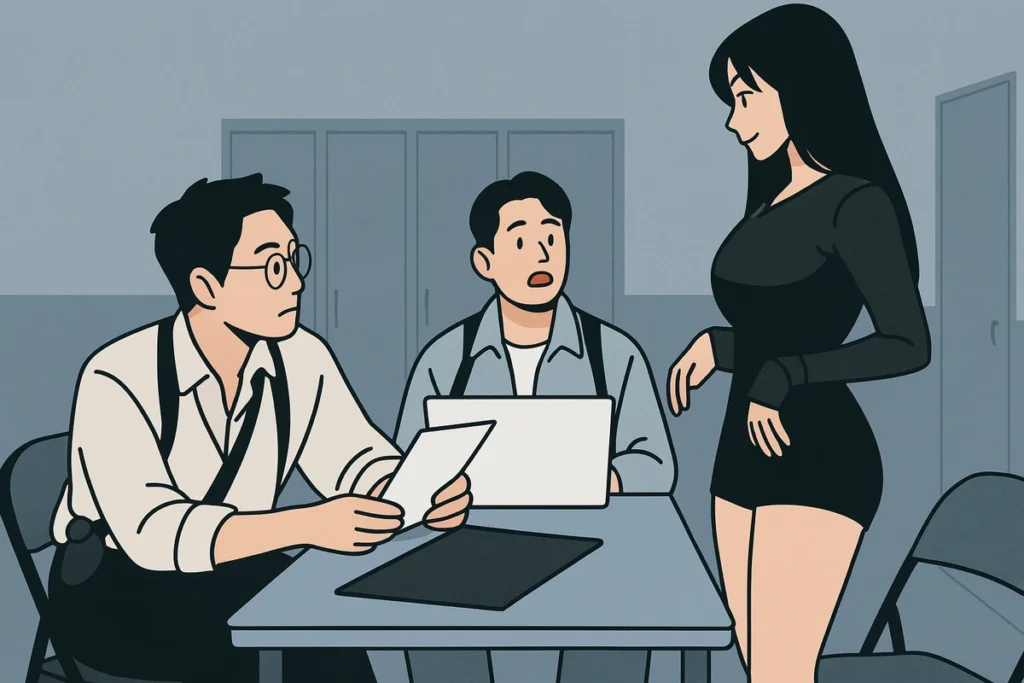[Image Source] AI illustration by DALL·E
TL;DR – Swearing isn’t always hostile.
Korean sketch comedy doesn’t shy away from harsh language—and SNL Korea shows just how intense close friendships can get.
This post examines the role of slang and swearing among friends in Korea, not just as insults, but also as indicators of emotional intimacy, social pressure, and cultural nuance.
You’ll learn what these words mean, why they’re used, and how to recognize them in real-life speech.

Learn cultural context, real expressions, and the fine line between teasing and fighting.
1. Scene Summary – What Happens in the Skit?
In a popular 2023 SNL Korea skit, a circle of close friends meets for some drinks. What begins as lighthearted teasing quickly turns into a fierce roast session. One friend’s boyfriend has been jobless for years—and the jokes get sharper. Yet beneath all the jabs, there’s a bond: despite the burns, they remain tight-knit.
📺 Watch the original scene here.
2. Key Slang Expressions from the Skit
| Expression | Meaning | Usage Notes |
|---|---|---|
| 이 녀석 | “This guy” (playful jab) | Can be teasing among friends, less harsh than the originals |
| 백수 | Unemployed person | Literally “empty hands” implies jobless but casual |
| 담배 타임 | Cigarette break | Slang for a quick smoke, every day in casual talks |
| 너무 심한 욕 | Extreme insults | Avoid using; shown in media for impact |
| 입이 거칠다 | Talks boldly | Describes someone who speaks without filters |
3. Cultural Insights – Why This Is Funny in Korea
Korean humor often thrives on emotional intensity. Friends in their 20s and 30s—especially women—sometimes tease, roast, and even curse each other as a sign of intimacy. But the line between playfulness and aggression can blur quickly.
– Hierarchy and age momentarily disappear in these moments.
– Roasting someone’s job, partner, or habits is seen as both a joke and a challenge.
– Even strong words like “개년” or “독한 년” may carry affection—if the tone is right.
Still, one misstep can turn comedy into a fight. That tension is what makes sketches like this both hilarious and relatable.
4. Learner Caution – Know It, Don’t Say It
| 🧭 Learn to recognize | 🚫 Do not use in real life |
| Harsh slang terms in media | Offensive terms like “씨발년,” “개년” in conversation |
| Cultural usage patterns | Mocking friends with swear words |
| Humor through exaggeration | Imitating sketch-style jokes without context |
These expressions are best understood as part of Korean media literacy, not as language to use yourself.
5. Safer Alternatives
| Harsh Term | Safer Word | Tone/Usage |
| 이 새끼 | 이 사람 | Neutral and safe |
| 개년 | 성격 센 여자 | Describes personality without offense |
| 백수 | 무직자 | Formal and respectful |
| 씨발년 | 너무한 여자 | Implication without profanity |
| 독한 년 | 당찬 여자 | Still strong, but positive nuance |
❓ FAQ (Frequently Asked Questions)
Q1. Do Koreans use these words in daily life?
Yes, but only in very casual or private settings, often among close friends or in heated arguments.
Q2. Why do comedy shows use them so much?
To heighten drama and realism. Swearing adds emotional tension—and comedy thrives on discomfort.
Q3. Is it safe to quote these words if I’m studying?
For educational purposes, yes—but don’t use them aloud unless you fully understand the social context.
☀️ Bonus Tips for Learners
📌 Don’t just memorize words—observe tone, context, and who’s speaking to whom
🧠 Swearing ≠ fluency. Learning how to listen without copying is an advanced skill
✅ Recognizing offensive language helps you stay safe, respectful, and competent in real conversations
6. Final Thought
Koreans are known for expressing strong emotions, and that includes swearing. Compared to many Western cultures, Korean culture has a broader range of curse words, and they’re used more casually in daily conversation.
That said, this doesn’t mean Koreans never get into fights over swearing—it just happens less often than in cultures where insults are immediately escalated. In many Korean interactions, people exchange harsh words without it escalating into violence.
Still, it’s essential to recognize these words if you’re interacting with Koreans—not to use them, but to avoid misunderstandings or conflict. In short: study them for awareness, not for use
📍 Want More Like This?
Explore more posts in our K-Show Slang, Advanced Korean Series and dive deeper into how Koreans express emotion, humor, and social nuance through language.


